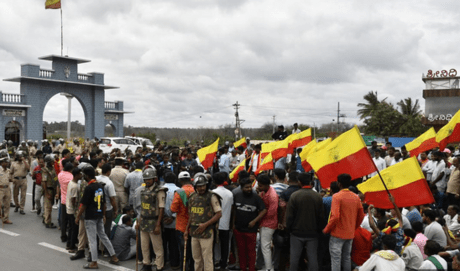Extended exclusion: On AFSPA in Manipur
With or without AFSPA , Centre should not allow Manipur situation to fester
Hill areas in Manipur will continue to be under the Armed Forces (Special Powers) Act (AFSPA) for another six months from October. The State government has issued a notification to extend the law’s imposition to the whole State, barring the areas falling under 19 police stations in the Imphal valley. The notification maintains the status-quo on the applicability of the potent law that grants extensive powers to the armed forces in notified ‘disturbed areas’ in the use of force. In normal circumstances, the only question that may have arisen is whether AFSPA is needed any longer. However, given the violent ethnic conflict since this May between the Meitei and the Kuki communities, the exclusion of the Imphal Valley from its purview even while extending it elsewhere comes across as quite ironical . The Army had sought its re-imposition in the Valley districts, as it felt that the absence of the law is hampering its operations against insurgent groups, which may be using the unrest to gain a foothold in the State. It can be nobody’s case that AFSPA should remain or its ambit increased; but it is difficult to avoid the question whether, if at all AFSPA is needed for some more time, areas that have witnessed considerable violence in recent months should remain excluded.
Perhaps , the government’s logic is that AFSPA is meant only to provide legal protection to forces engaged in counter-insurgency operations and not those engaged in law and order duty amidst internal conflict. However, the exclusion of the valley districts from AFSPA at this stage is liable to be interpreted as yet another instance of the government’s partisan conduct . One of the reasons for the government maintaining the status quo on the extent of the ‘disturbed areas’ is that a detailed assessment of the ground situation is not possible at the moment when the security agencies are engaged in maintaining law and order. Further, the notification says the issue of declaring an area as ‘disturbed’ is quite sensitive and it may lead-to public criticism and resistance . The only possible interpretation is that the fear of displeasing the majority Meitei seems to be the core aspect of the government’s policy. In the backdrop of the hostility of the community towards the Assam Rifles, and the Assam Rifles’ apprehension that trucks made to resemble its vehicles may be used to commit offences in a bid to tarnish its image, the situation is rife with possibilities of further conflict. The Centre should not delay any further a serious initiative to bring about reconciliation between the two communities, lest the situation fester and deteriorate .
